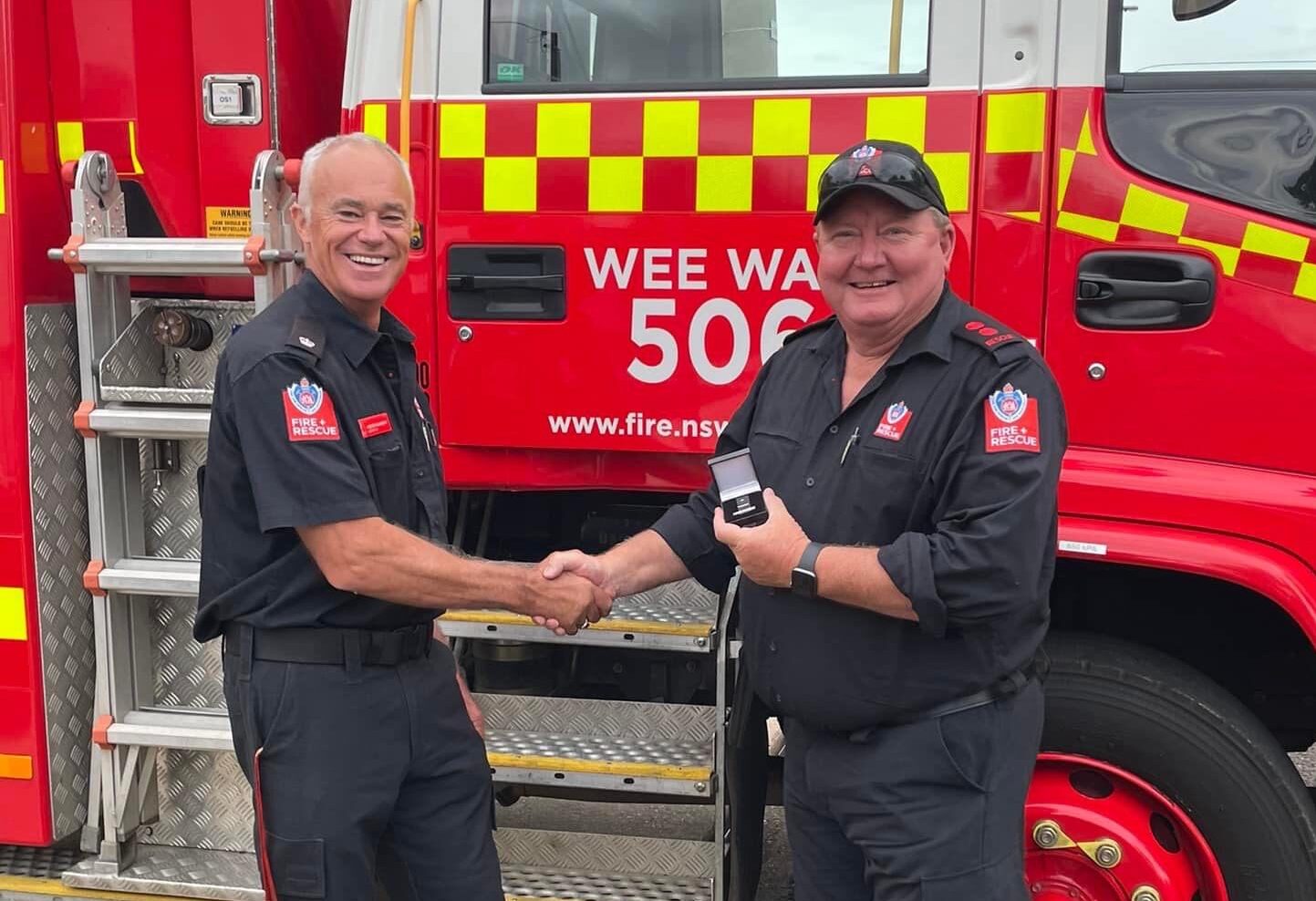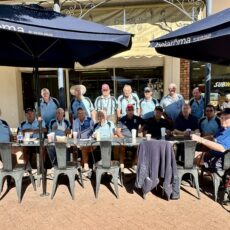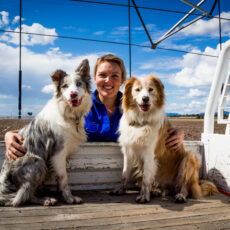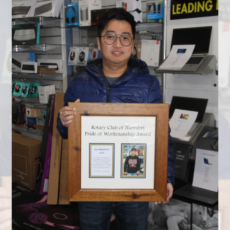Wee Waa Fire and Rescue station commander, captain Bruce Cowan and deputy captain John Fogarty both received a second clasp for the Fire and Rescue NSW Long Service and Good Conduct Medal, on Wednesday, February 2.
The second clasp of the LSGC Medal signifies 30 or more years of service to Fire and Rescue NSW, the dedicated firefighters marked this milestone in 2020 but due to COVID-19 restrictions were only recently presented with the honour.
Inspector Peter Nugent, a Fire and Rescue NSW duty commander with the Peel region, travelled to Wee Waa for the official presentation.
“It just adds to the recognition of your 30 years to get the clasp, even though it’s only a little medal, it’s still recognition of what you’ve done,” said Mr Cowan.
“People will tell you that they don’t care (about recognition), but you do – we might look like big tough firemen, but we do care – the recognition is humbling.
“It is very humbling to get it, they don’t just give it to you because they can.”
In 2020, The Courier featured a story with Mr Cowan and deputy Mr John Fogarty when they both clocked up an impressive 30 years of service each at the Wee Waa Fire and Rescue Station.
“I resigned after 21 years and they wouldn’t accept my resignation so here I am,” said Mr Cowan at the time.
“I’ve always said I won’t go while they’re short, we could do with some more recruits but while they’re short – they’ve got me.
“Also, because the way politics is these days if you’re short, and you keep staying short, then you could possibly lose the service and that’s the last thing I want to see for Wee Waa.”
Mr Cowan and Mr Fogarty both said serving the community and helping people were the main reasons they put their hands up to join the NSW Fire Brigade back in 1990.
“I think I was about 29 and I was getting my motor car fixed down at Mick Horne’s and Mick was the captain – he was the one that posed the question to me about joining,” said Mr Cowan.
“They were looking for some young blokes, and I started chatting to some of the older fellas about it and decided to join, “ he said.
“My employer at the time was in the fire brigade,” added Mr Fogarty.
“He asked me to join, and it looked like it was an okay thing to do, and I thought of the community service element, so I got into it.”
There’s no doubt the job is demanding, and it requires crew members to be on call 24/7.
The callouts stretch far beyond fighting fires.
“We’ve been called out to cats down drainpipes in the main street, crash rescue, assisting ambulance is a big thing at the moment with the elderly in town – if two ambulance people can’t carry them out of a narrow hallway house we usually get called to help them,” said Mr Fogarty.
“There was once was a bloke who had his foot stuck in a bucket at Pilliga bore – that’s one of the funnier ones.
“He got it out before we got there, we were all going ‘you’re kidding me’.
“He’d got his foot stuck in a steel mop bucket. “
Of course, fire and rescue crews are most often faced with incredibly serious and confronting scenes.
Mr Cowan’s first call-out was to a fatal accident in Wee Waa.
“It was drizzling rain, there was fog, and it was just a miserable night,” he recalled.
“I’d been to various drills and what not but hadn’t been on a call, and unfortunately my first call was to a truck and a motor car accident in Mitchell Street – it was a fatal accident.
“I didn’t expect to get something like that on the first call, but that’s the reality.
“When we joined, we joined to be firefighters, we joined to put fires out, but you learn very quickly that the job isn’t just about putting fires out.
“It was a miserable night and to top it off when I left the station and drove down past the town clock when I turned left, I ran over a black cat.”
The nature of serving a country town means that inevitably crew members will know, or have some connection to, the people at the scene.
“We’ve been called out to a car accident where a friend of ours was killed,” said Mr Fogarty.
“It does make it hard.”
“It doesn’t matter what time your pager goes off, the first thing you think about is your family, straight away,” added Mr Cowan.
“You try and ‘scenario it up’ as you’re on your way ‘what are we going to, what are we going to, geez I hope it’s a false alarm’,” said captain Cowan.
“You hope it’s just burning toast and not something else,” added Mr Fogarty.
Both firefighters said the training, their personalities and the mateship are what helps them cope with the horrors of being first on the scene.
“I do like the camaraderie with the other guys,” said Mr Fogarty.
“When we started, we had the ‘old guys’ and we were the ‘young guys’, and now it’s good to talk to some ‘young guys’ and have a bit of banter.
“Some can cope, and some can’t, and for the people that can’t we have a very good service that looks after us that way as well,” said Mr Cowan.
“So, if you’re not coping you can call chaplains or a critical debrief team.”
Mr Cowan said the job has taught him not to ‘sweat the small stuff’.
“The one thing this place has given me I think, especially at work, is you don’t panic,” he said.
“I think it’s taught us to sit back and have a look at a situation – it’s good advice for daily life.”
The firefighters said the joy of helping achieve a positive result is also something that makes the challenging role rewarding.
“When you get to a house fire you really feel for the people, but when you can get to something in time and keep the damage to a minimum where they can rebuild – that’s good,” said Mr Cowan.
“I’ve been to motor vehicle accidents and seen people after where you think ‘how did you live?’.”
Both men also thanked their families and their employers, Cotton Seed Distributors and Queensland Cotton, for allowing them to serve the community.
To order photos from this page click here










